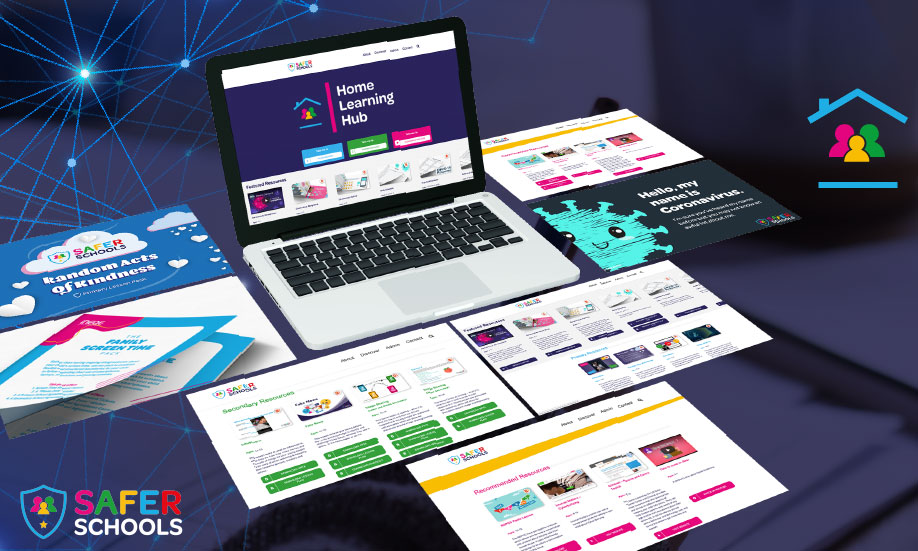Last Updated on 2nd September 2022
Read the script below
Hello and welcome to the last of our special jam-packed summer editions of Safeguarding Soundbites. My name’s Colin Stitt and I’m the Head of Safer Schools at INEQE Safeguarding Group. Today I’m going to be bringing you a round-up of all the latest safeguarding news and need-to-knows, plus getting you up to speed on our online safety expert’s latest advice and guidance.
It’s back to school time across the U.K, with many pupils already back in the classroom and some still dusting off the school bags ready to start soon. However, whether they’re already back or waiting to go, this can be a challenging time for pupils and parents alike. So we’ve created a guide for parents and carers with all you need to know to get through this period of transition and change. To help you understand how this time feels for a young person, we’ve included examples of their perspective on each of the significant aspects of back-to-school time. Find the article in our online safety section at ineqe.com.
The Commonwealth games may be over but after including esports for the first ever time, it seems that electronic sports can only be expected to gain even more popularity and significance. But not everybody will know what esports are or why they’re so popular with young people – that’s why we put together a guide to esports that will help you again a better understanding of this form of online competitive gaming, including what the risks are and how you can help mitigate them for the children and young people in your life. Check that out in our online safety section. Again, on our website.
Telling someone to ‘be real’ might sound like an insult but these days it might just be referring to the app of the same name that’s rising in popularity, which reportedly now has up to 10 million daily users. Unlike other social media apps that also focus on sharing photos and selfies, BeReal’s mission seems to be all about sharing the reality of the day-to-day, rather than a carefully curated version of our lives. It prompts users to take a photo at random times, leaving the user with little time to prep an image of perfection! Find out more about the app and what our online safety experts had to say in our online safety section of our website.
There’s been a few updates in the tech world since our last Safeguarding Soundbites, including the addition of supervision tools on Snapchat. The new parental controls will allow parents and carers to see who the children in their care are talking to, but not the content of the messages. Parents and their children must both consent by accepting invitations to the Family Center which will also allow concerned parents to make direct reports to Snapchat. You can find out much more about this update, including the potential risks, benefits and top tips in our latest online safety article.
Speaking of updates, Apple have announced that users should update their devices as soon as possible but have added that there’s no need to panic. It comes after Apple discovered a major security flaw that could enable hackers to take over a device. This announcement comes ahead of the latest apple event on the 7th September named “Far Out”. This event is where apple will announce their latest products, upgrades, and latest software updates.
Talking about updates, WhatsApp have added privacy features to their platform, including choosing who you do and don’t want to see when you’re online. Previously, this setting was either for everyone or no-one, now this can be changed for each contact. You can now also leave a group without it being announced to anyone except the group admin. And still under testing, WhatsApp is planning to release a feature that blocks any attempts to screenshot photographs that are sent under their ‘view once’ option.
New data has shown that emergency mental health referrals for young people have hit an all-time high, with 982 under-18-year-olds being referred to crisis care teams in May this year alone. Non-emergency referrals are also on the rise. Mental health charity YoungMinds is calling on the government to do more to end the crisis in young people’s mental health.
There have been reports of videoed attacks on children as young as 11-years-old in a Lancashire town, with the videos then been uploaded and shared online by the perpetrators. Known as ‘patterning’, the aim is by sharing the videos that the victim is then embarrassed further. In a statement quoted by the BBC, Lancashire Police recognised the impact such attacks have on the victims and that all incidents have been dealt with appropriately.
A new study has shown that children in the U.K. lack an understanding and awareness of cyber bullying. According to the latest research by cyber security company McAfee, many children don’t understand what cyber bullying actually is, despite the high number of children who appear to be victims of it. 56% of children have experienced online name calling, which is significantly higher than the global average of 40%. To learn more about cyber bullying, search ineqe.com for ‘bullying’ to find further resources and advice.
That’s everything from me, I’ll be back again next week with another round-up of news and, of course, all the very latest from Ineqe’s safeguarding experts. In the meantime, visit our website at ineqe.com and find us on social media by searching for Ineqe Safeguarding Group. I hope you have a great week, stay safe online and I’ll speak to you next time!
Join our Online Safeguarding Hub Newsletter Network
Members of our network receive weekly updates on the trends, risks and threats to children and young people online.
Pause, Think
and Plan
Guidance on how to talk to the children in your care about online risks.

Visit the Home Learning Hub!
The Home Learning Hub is our free library of resources to support parents and carers who are taking the time to help their children be safer online.












